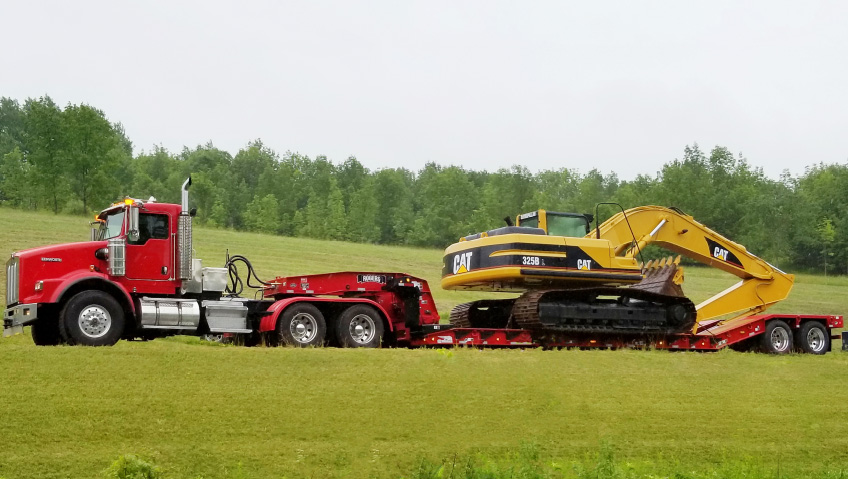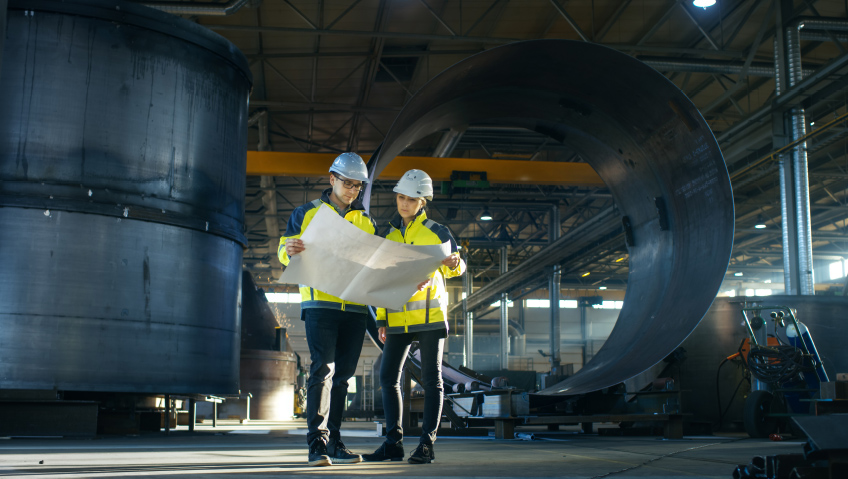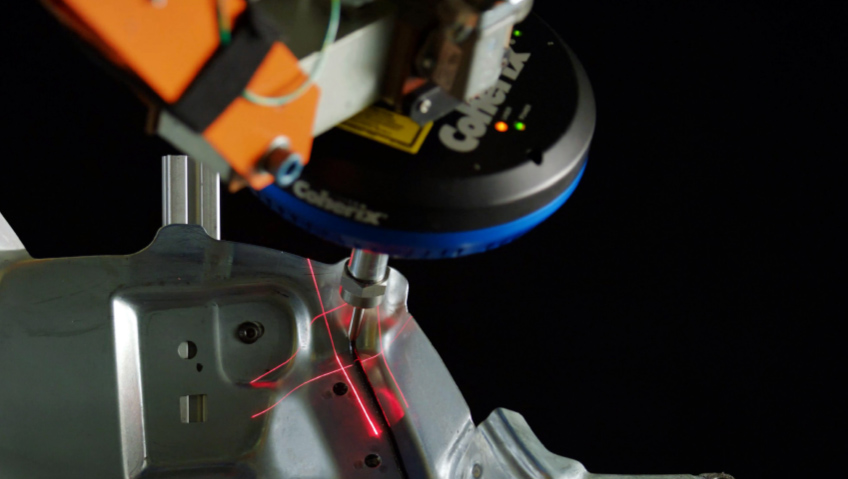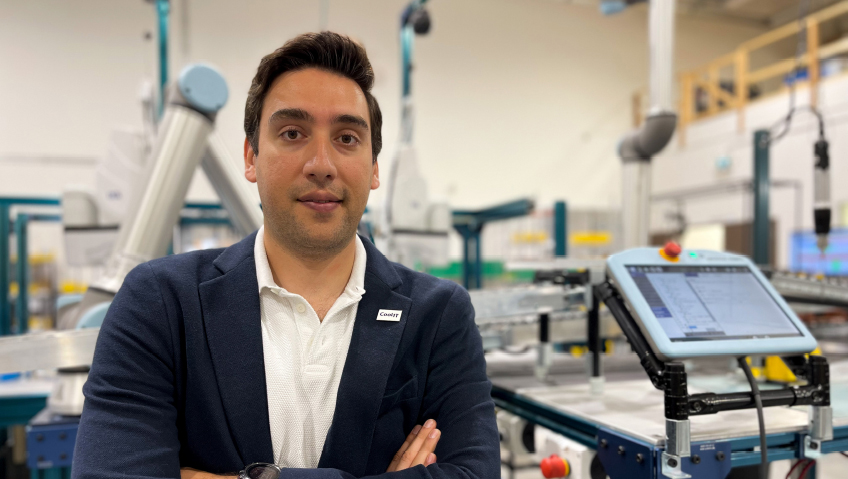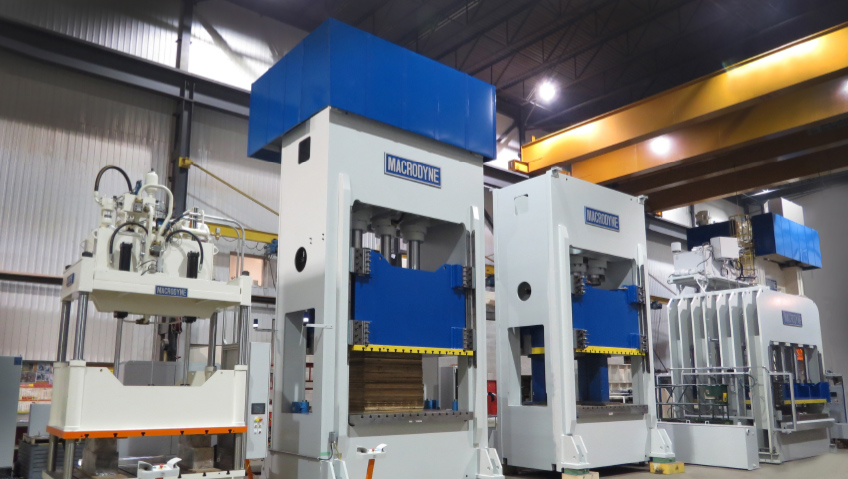Long before founding Laval Tool and Mould Ltd. in Windsor, Ontario, Larry Azzopardi was an up-and-coming entrepreneur working at International Tools Limited (ITL), a company that had been founded as World War II drew to a close.
Home to countless skilled tradespeople, many of them European immigrants, ITL became a sort of incubator where generations of workers apprenticed, honed their craft, and moved on.
“There was generation one, two, three, and four; my dad was generation two,” says Jonathon Azzopardi of his father, who, with three partners, left ITL and started Laval Tool and Mould in 1975.
“It was almost a rite of passage that ITL would spin off very competent entrepreneurs in this space, and they seemed to go in batches,” Azzopardi says. Now, almost 50 years later, the team at Laval still designs and builds complex compression moulds for its many customers.
Laval Tool and Mould is a Controlled Goods Program (CGP) compliant manufacturer and works for clients across North America in government, military, recreational, and specialty vehicles, heavy trucks, and household items.
The size of its products varies considerably. At the big end, some of the largest items Laval makes are one-piece tools, weighing about 200,000 pounds, for enormous air fairings fitted to trucks. At the opposite end, Laval builds moulds for simple plaques measuring about 12 inches by 12 inches and even smaller parts, the size of a potato chip, which go inside the plaque.
“We only focus on composites,” says Azzopardi. “We do only the compression process. We don’t actively go after the injection process.”
Beginning his involvement in the family business while still a child, Jonathon Azzopardi helped clean the company’s bathrooms. With the start of his employment proper, he gained experience in different divisions within Laval. The youngest of the Azzopardi boys, he worked for all his older siblings at some point, getting to know the industry firsthand.
After Larry passed away in 2009, the company underwent some reorganization for about a year, and Jonathon assumed the role of chief executive officer and president in late 2010. Today, under Azzopardi’s leadership, Laval Tool and Mould is evolving and diversifying its sectors.
When Laval opened, it was a regular mould shop. Through the 1970s, ‘80s, and ‘90s, the mould industry was highly lucrative until the recessions of the late ‘90s and early 2000s kicked in.
Global supply chains were affected, and Laval had to compete with lower-cost countries, primarily China, which made the going hard. Faced with a challenging marketplace and global downturn, the company implemented drastic changes in 2006.
These included pulling away from automotive and diversifying its client base, sectors, processes, and materials, adding greater value to its products across the board. The result was a new golden age.
About 20 years ago, the company moved away from commoditized tooling. “How we define commoditizing is when somebody can put you in a box and define you easily. We did everything we could so that you couldn’t put us in a box, which means we do all the things that nobody else wants to do,” says Azzopardi. “We take a lot of risks. And by assuming a lot of risks, we are de-risking the process for our clients.”
Although de-risking can be perilous, the people at Laval have become masters at the process, whereas others, such as manufacturers in China, don’t want to assume any risk, other than repeat the manufacturing process thousands and thousands of times, which is how they make their money.
“We’ve taken a totally different approach: we are going to do the things nobody else wants to do. We’ll do them in low-volume scenarios, high-volume scenarios, and scenarios that haven’t even been defined. That’s the space we live in,” says Azzopardi. “And that includes prototyping.”
De-commoditizing tooling and being parts-responsible means Laval takes on potential issues on behalf of customers, and they’re especially proud of this. “We continue to add more services to the company that the clients would typically be responsible for, to the point where we’re actually as good at what we do as the client we’re making the parts for,” says Azzopardi.
“If you think about tooling as being the centre hub of what it takes to make a part, tooling is just the centre. There’s a lot of stuff on the front end—which is design and simulation—and there’s a lot of stuff that comes after the tool is made at the back end, which is making the parts and prototyping them for sampling, and doing one-offs.
“So we have opened up our value-added to all of those operations at the same time under one roof. That’s what we’ve been doing since 2000.”
As well as long-time sectors like government household items and heavy trucks, Laval is active in areas such as construction materials, industrial products, and Internet and IT.
Due to the nature of its business, the company has a reputation for de-risking composite parts for virtually every industry, including agriculture and the cannabis sector. “When we de-commoditized tooling and opened up that we are parts-responsible, our opportunities greatly increased,” says Azzopardi.
One of the company’s most gutsy, against-the-tide initiatives came when Laval stopped building injection moulds. Many others in the sector were stunned by the move, since injection accounts for some 98 percent of the industry, with Laval investing in and concentrating on the remaining two percent.
“We are not just a moulding company, we’re a tooling company who also has moulding,” explains Azzopardi, “and they are both heavily invested industries. You have to invest so much to be competitive in these industries that most people wouldn’t want to take on both of these animals at the same time. We’re doing it every day because we have to.”
By being parts-responsible, not tool-responsible, Laval has the same capabilities as its clients—since it has to be able to make the parts they would make—but also has other services that clients do not have, namely the tooling aspect. “And that’s a very complicated monster to manage,” says Azzopardi.
Along with being a highly experienced, parts-responsible and family-owned business, Laval Tool and Mould brings many other benefits to its customers. On the border between Canada and the United States means Laval is readily accessible and accountable, compared to offshore companies. This is newly evident as the world comes out of COVID-19, which saw supply chains crumble and transportation of goods slow to a trickle.
“We live in the world of uncertainty,” says Azzopardi. “Manufacturing today is changing all the time. Lead times are shorter, the supply chain is unstable—with all the risks associated with being in business now, and manufacturing specifically—and you take on even more risk when your partner is on the other side of the ocean. COVID really brought to light the risk of doing business with somebody who’s not in a place that we can just get in the car and drive to.”
Much like Laval’s de-risking processes for its clients, it also helps them by being a Made in Canada business, and providing stability and accountability.
Canadian and American suppliers are generally extremely stable, and Laval brings stability to a very unstable space and gets the job done right the first time. This even extends to the company purchasing its own trucks after border shut-downs to ensure transportation of materials and products, and diversifying its supply chain. Before the pandemic, Laval bought steel from two countries; today it buys from five countries.
As it looks forward to growth in Canada and the U.S., the future of Laval is assured. Although he’s only in his forties, Azzopardi hopes the family business will continue with the next generation.
“I’ve got a son who’s smarter than I am,” he says, with a father’s pride. “I believe that one day he will be someone more amazing than I could ever be, and if that leads him here, I’d be happy to have him on the team. He’d be a great addition.”


